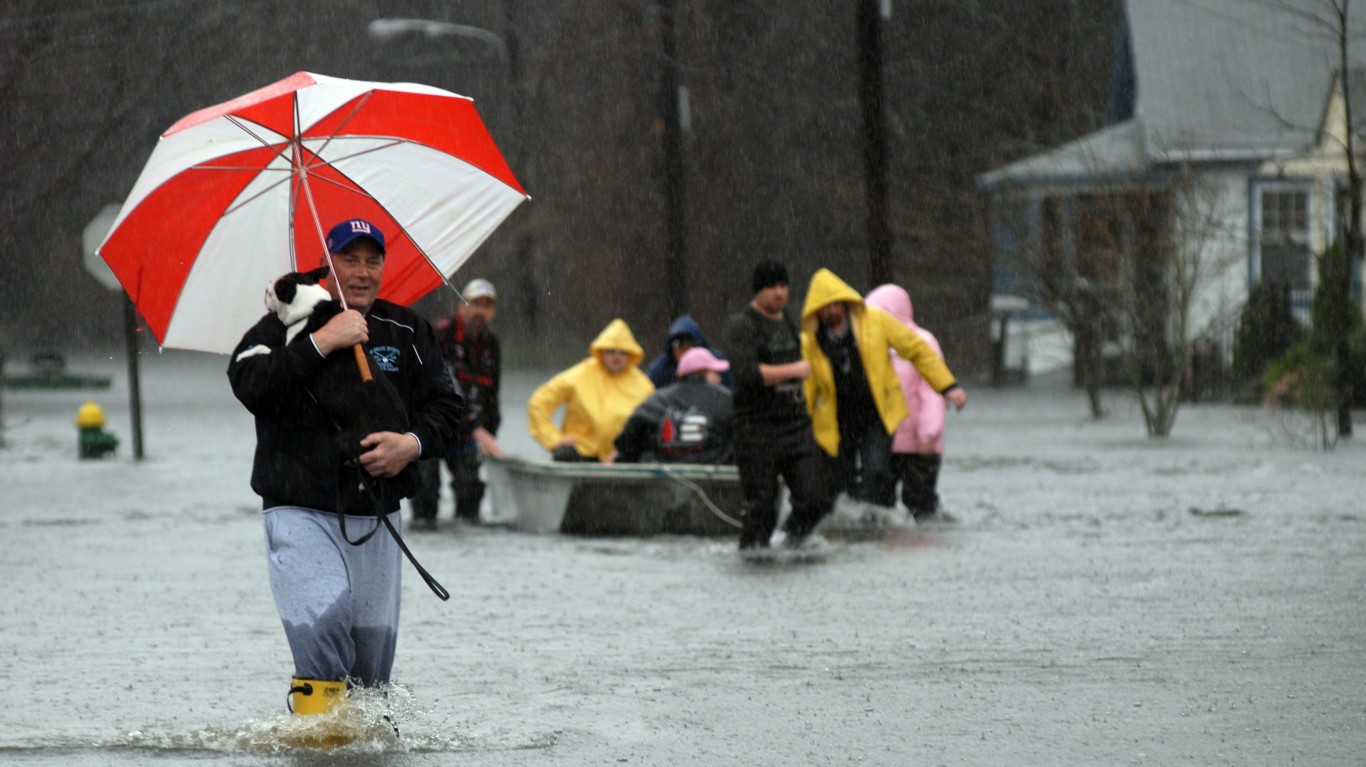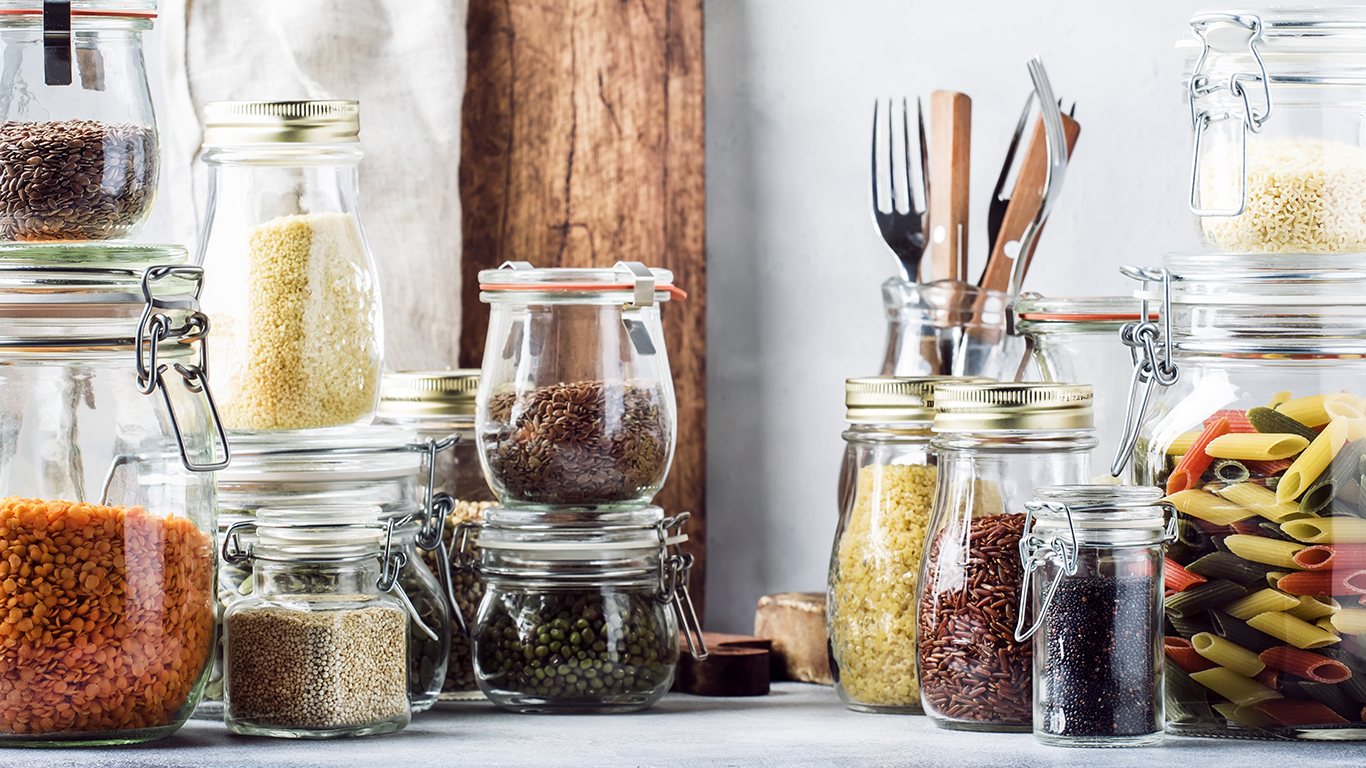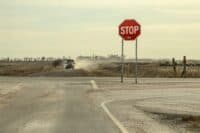
If any American went back a month in a time from the middle of March, things were still chugging along just fine. The stock market was at all-time highs, the Federal Reserve was satisfied that the economy was fine, and many families were still planning their Spring Break trips with their families. As the coronavirus began to spread rapidly outside of China, that all started to change quickly and now stocks entered a bear market (20% correction), the Fed has issued an emergency rate cut, and the World Health Organization finally admitted that the COVID-19 outbreak is a pandemic.
It turns out that the so-called “Doomsday Preppers” have more than a lesson or two for the American public that may help navigate through at least some of the impact of the coronavirus outbreak. The prepper community has seen its share of mixed views over the last decade, but it has been widely reported that prepper sites and stores which cater to preppers have seen a big jump in business. In fact, many stores in America have sold out of toilet paper, bleach wipes, hand sanitizers and so on.
The U.S. Centers for Disease Control and Prevention (CDC) had previously warned that it’s likely a “when rather than if” scenario for expectations of an outbreak in the public in the United States. The cases have become much more widely known now, with schools being closed, companies adopting a work-from-home policy, sporting events seeing entire seasons interrupted, business conferences canceled, and public events being canceled. There is now even a flight ban to and from Europe.
The public has every right to be concerned about the coronavirus, even as there are many people who debate just how deadly the virus is. The doomsday preppers offer some useful lessons from the not-so-distant past for those who are actually worried about the coronavirus coming into their home.
24/7 Wall St. looked back at our coverage of preppers from the past decade and applied some of the thoughts and procedures that would apply during a pandemic.
Doomsday prepping is far from being a new phenomenon, and concerns over viral outbreaks and pandemics are not new either. There are still many homes and many buildings throughout America that have built-in bomb shelters from the Cold War era. Some Americans have built remote shelters in more modern times to protect their families from societal threats. The U.S. Congress even built a government relocation site at the famous Greenbrier Resort as an alternative site.
Before considering doomsday preppers might be too extreme for the coronavirus scenario, not all doomsday preppers are alike and some of the past efforts from 2010 or before may not apply in 2020. Some preppers have feared a global economic meltdown. Some have feared a totalitarian takeover or more widespread terrorism of various sorts. Others just fear mass unrest. And, yes, some preppers have feared pandemic outbreaks that would include or even be worse than the modern COVID-19 pandemic.
The very first lesson for America is to observe is what took place in China during January and February. The city of Wuhan was locked down, cutting all travel in and out. Workers were told to stay home, and many could not get to where they needed to go. Airlines stopped flying in and out of China for the most part. The travel industry was gutted, and the manufacturing report for February was the worst one ever recorded since they started keeping records.
Extreme survivalists within the prepping community would keep “bugout gear” or a “bugout bag” handy that goes well beyond a suitcase, backpack and tent. Many preppers keep gold and silver stashed away, and gold had risen from under $1,500 per ounce at the end of 2019 to as much as $1,700 before backing off sharply. Many preppers also keep guns, knives and ammunition handy. Preppers are also known to keep a stockpile of basic medical supplies and nonperishable food, water and cooking supplies. Preppers are also known for owning generators and other electronic gear.
Air travel is already facing massive disruption. The flow of goods around the United States could face delays or come to a halt (see the ISM’s survey about supply chain disruptions). Hospitals and medical facilities could become overwhelmed. Many more factories and offices could be closed. More schools could be closed, and mass gatherings and most public events could be canceled. Before this sounds overly alarming, many of these efforts have already been announced.
It is becoming more and more real that the United States and other nations see their populations become stuck at home with literally no place to go. Assuming shelter is already accounted for, there are many basics that preppers could teach the public as almost every industry has now faced issues from the spreading of the COVID-19 outbreak.
Food and water might not be an immediate concern under a pandemic scenario, at least not for a while. The search term of “MRE” on Google had already seen spikes in the past month. Ditto for “emergency food” as a search term. Under pandemic scares, it is assumed that grocery store access would still be available in some form or fashion. The business at restaurants and bars would face far worse problems, with lower demand from the public, and many of their workers stuck at home to tend to their families. The public should consider that store shelves were empty in some parts of China during the peak of its outbreak.
Some medical products already have seen a jump in demand. Preppers who feared a pandemic would have already owned medical masks that would typically be seen in health care settings. As of late February 2020, a shortage of surgical and medical masks was widely known and that continues today. These are out of stock at many retail locations, and many wholesale locations have these on back-order and listed as out of stock. 3M’s supply of cloth medical masks was shown to be on global allocation even in February.
Preppers would almost certainly have not expected the travel industry to be there for them in times of need. That said, the travel sector has taken it on the chin even in areas not affected by the coronavirus. The warnings from airlines and cruises have been bad and continue to get worse. Many hotels have effectively lost their bookings as conferences and public events have been cancelled.
Personal care products and consumer goods have been hoarded by preppers in the past. The consumer products giant Procter & Gamble warned that it was facing issues in China as its second strongest market for sales and profits. Clorox, known for its bleach and wipes to fight germs and other messes, was among the handful of stocks that has seen interest because everyone knows that “bleach kills everything.” The CDC’s own COVID-19 warning said to use alcohol-based hand sanitizers that contain at least 60% alcohol if soap and water are not available in its prevention update.
It may seem unlikely on the surface that gun sales would rise over people having to stay home because their workplaces and their kids schools are closed. There is certainly a correlation with a presidential election year where gun control is being debated. There was a big jump in NICS firearm background checks in February of 2020, with a gain of about 37% to 2.8 million versus February of 2019.
Communications is an essential issue for preppers of all sorts. The public should have at least some concerns about their communications tools today if they are in need of an update or a phone refresh in the months ahead. The mighty Apple already warned of consumer misses and supply chain issues in China already, and more recently one of the worlds top outsourced manufacturing giants that serves Cisco, Apple, HP, Amazon and other tech giants that their factories are running at about two-thirds of capacity.
Some of the prepper and survival websites also have been covering the coronavirus quite closely. One is SHTFplan.com, and if you wonder what that stands for it involves a fan and something else unpleasant. The Boston Herald published a report in February about warnings from a prepper about stocking up on supplies. Even the mighty Amazon.com has extensive listings under “preppers” and “coronavirus,” but don’t expect to find many medical facial masks.
Doomsday prepping had been nowhere nearly as popular in recent years as it was just 5 to 10 years ago. After all, the economy had continued improving and unemployment has reached lows of the modern era. It is probably not in the cards for most of the public to run out and buy up all the supplies needed to survive the end of the world if the coronavirus is the biggest concern. That said, some instances already have been seen where supplies are being bought out and are being sought out, and those old doomsday preppers have at least a few lessons that would apply to the current coronavirus outbreak.
One of the last lessons a true doomsday prepper would have for the public is that if you have waited until the government warnings have been made and the economic calamity has started, you are either too late or are way behind.
Want to Retire Early? Start Here (Sponsor)
Want retirement to come a few years earlier than you’d planned? Or are you ready to retire now, but want an extra set of eyes on your finances?
Now you can speak with up to 3 financial experts in your area for FREE. By simply clicking here you can begin to match with financial professionals who can help you build your plan to retire early. And the best part? The first conversation with them is free.
Click here to match with up to 3 financial pros who would be excited to help you make financial decisions.
Have questions about retirement or personal finance? Email us at [email protected]!
By emailing your questions to 24/7 Wall St., you agree to have them published anonymously on a673b.bigscoots-temp.com.
By submitting your story, you understand and agree that we may use your story, or versions of it, in all media and platforms, including via third parties.
Thank you for reading! Have some feedback for us?
Contact the 24/7 Wall St. editorial team.
 24/7 Wall St.
24/7 Wall St.

